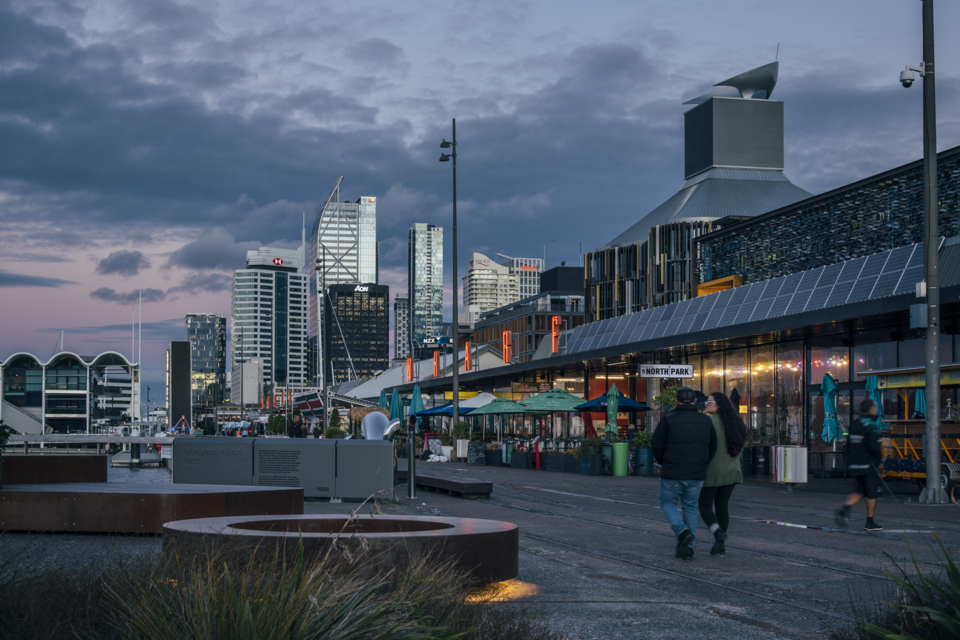Detailed regional results from the 2024 Quality of Life survey are now available, providing more insight into how Aucklanders are faring.
The survey is carried out every two years and collects information on a range of current and topical issues relevant to wellbeing. 2,524 Aucklanders aged 18 and over took part last year.
Following the initial release of topline results in February 2025, a report containing more detail for Auckland is now available on Knowledge Auckland.
Dr Trudie Cain, Auckland Council’s Senior Social Researcher says the new data provides additional information on various factors that influence quality of life, including housing, transport, the built and natural environment, health and wellbeing, crime and safety, and climate change.
“These results will help to shape Auckland Council’s ongoing efforts to create a thriving, sustainable community where all residents feel valued and supported. While challenges remain for some Aucklanders, these insights will contribute to policies that promote inclusive and equitable outcomes for everyone,” says Trudie.
While three-quarters of Aucklanders rated their quality of life positively, the latest results have revealed wide variations in outcomes across Auckland by geographical area, ethnicity, and age.
Urban South Auckland-based respondents were less likely than respondents in north and rural Auckland to report their quality of life positively, as were Māori and Pacific respondents, when compared with other ethnic groups. Older Aucklanders, aged 65 and over, tended to report higher perceptions of their quality of life.
Housing affordability
Just one-third of Auckland respondents agreed that their housing costs were affordable. Young people aged 18 to 24, those living in South and East Auckland, and those who identified with an Asian ethnic group were least likely to agree their housing costs were affordable.
Issues of concern
Issues such as people begging, alcohol and drug-related anti-social behaviour, and people sleeping rough were viewed as issues of concern by many Aucklanders. Respondents living in southern parts of the city and those who identified as Pacific were more likely to view each of these issues as concerning, while those aged 65 and older were less likely to view them this way.
Meanwhile, those living in northern and eastern parts of Auckland were more likely to appreciate the look and feel of their local area, and more commonly thought their local area was a great place to live.
Social wellbeing
Despite these differences, Auckland respondents across different geographical areas, age and ethnicity groups reported a high level of social wellbeing. Around three-quarters agreed that the neighbourhood and home they lived in suited the needs of everyone in their household. More than eight out of ten respondents felt they had someone they could turn to for practical and emotional support during a difficult time, and three-quarters had participated in a social network or group in the previous year.
Significantly, two-thirds (67 per cent) of Auckland respondents felt accepted and valued for their identity (a 19 per cent increase since 2022), and eight out of ten (79 per cent) agreed they felt comfortable dressing in a way that expresses their identity in public, an increase of 9 per cent since 2022.
The results will be used by the council to help plan for the future and to monitor economic, social and environmental outcomes over time, as outlined in the Auckland Plan 2050 and Ngā Hapori Momoho, our Thriving Communities Strategy.

About the survey
-
The Quality of Life survey is a collaborative local government research project. Several councils participated in the 2024 survey including Auckland Council, Hamilton, Tauranga, Porirua, Wellington, Christchurch and Dunedin City Councils, as well as Waikato Regional Council.
-
The fieldwork and analysis were undertaken by Ipsos. Fieldwork occurred was undertaken between April and August 2024.
-
All sample surveys are subject to sampling error. The Auckland results are subject to a margin of error of plus or minus 2 per cent.
-
A detailed report for Auckland that presents results by geographic area, and across broad age and ethnic groups is now available on the Quality of Life website and Knowledge Auckland.
-
Additional reports from the 2024 Quality of Life survey can be found on Knowledge Auckland:
-
Quality of Life survey 2024: Topline report
-
Quality of Life survey 2024: Technical report

